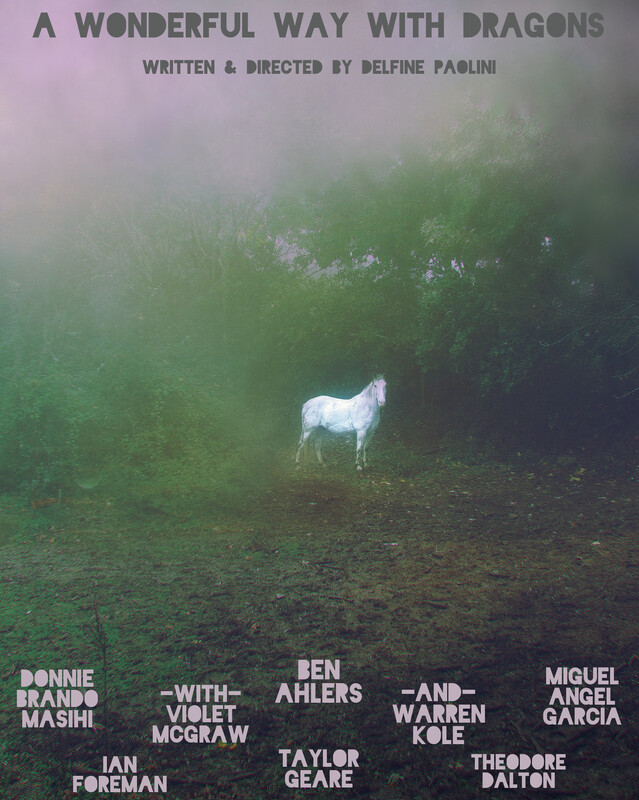
Long métrage 01:50:46 - fantastique - United States
Réalisé par / Directed by
Delfine Paolini
2024
Synopsis : After a pandemic sweeps the world, six children remain abandoned on an enigmatic island. Their struggle to survive becomes paled by individual desires for each other and for power.
During the pandemic, when the fragility of society became painfully evident, I began to write a story that explored themes of isolation, fear, family and civilization. "A Wonderful Way with Dragons" was borne from wanting to understand what holds a society together. Years ago, anthropologist Margaret Mead was asked by a student what she considered to be the first sign of civilization in a culture. The student expected Mead to speak about fish-hooks or clay pots or grinding stones. But Mead said that the first sign of civilization in an ancient culture was a femur (thighbone) that had been broken and then healed. Mead explained that, in the animal kingdom, if you break your leg, you die. You cannot run from danger, get to the river for a drink, or hunt for food. You are meat for prowling beasts. No animal survives a broken leg long enough for the bone to heal. However, a broken femur that has healed is evidence that someone has taken time to stay with the one who fell, has bound up the wound, has carried the person to safety and has tended the person through recovery. Assisting others through adversity defines a civilization. Without the desire to help one another, society devolves. "A Wonderful Way with Dragons" explores the elements that hold a society together; a society composed of six children. Will civilization, with its morals and conventions, disappear, leaving only a heap of broken images from the past? It was my desire to visualize what endures, as well as what fades.
Ce film est inscrit au marché du film.
Service offert lors de l'inscription.
Ce service est sous l'unique responsabilité des ayants droits, vous pouvez gérer ces paramètres dans votre "Espace Personnel" - Rubrique : "Industrie".